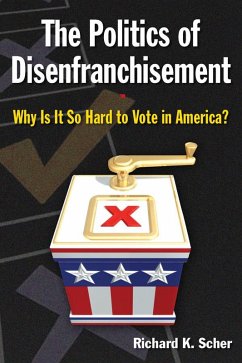
The Impact of Banking Policy on Trade and Global Stability (eBook, PDF)

PAYBACK Punkte
29 °P sammeln!
Ashdown analyzes some of the mainstream theories that policy makers and global leaders use as templates in understanding the international system and measures their effectiveness in explaining the policies of nation-states, particularly in regard to trade and power. Throughout, the United States is used as a case study to see how banking and central bank monetary policies affect international trade and investment. The study examines the banking history of the United States and how the corporate consolidation process was institutionalized with the creation of the U.S. Federal Reserve System. As...
Ashdown analyzes some of the mainstream theories that policy makers and global leaders use as templates in understanding the international system and measures their effectiveness in explaining the policies of nation-states, particularly in regard to trade and power. Throughout, the United States is used as a case study to see how banking and central bank monetary policies affect international trade and investment. The study examines the banking history of the United States and how the corporate consolidation process was institutionalized with the creation of the U.S. Federal Reserve System. Ashdown concludes that current policies fail to support the national interest by creating policy that allows or ignores sustained trade deficits over consecutive years. He demonstrates how institutions can affect, or even constrain, the policies of nation-states, which is then theoretically generalized in demonstrating how other global actors are shaping the post-bipolar international power structure. Of particular interest to scholars, students, and policy makers involved with economic policy, finance, and international business.













